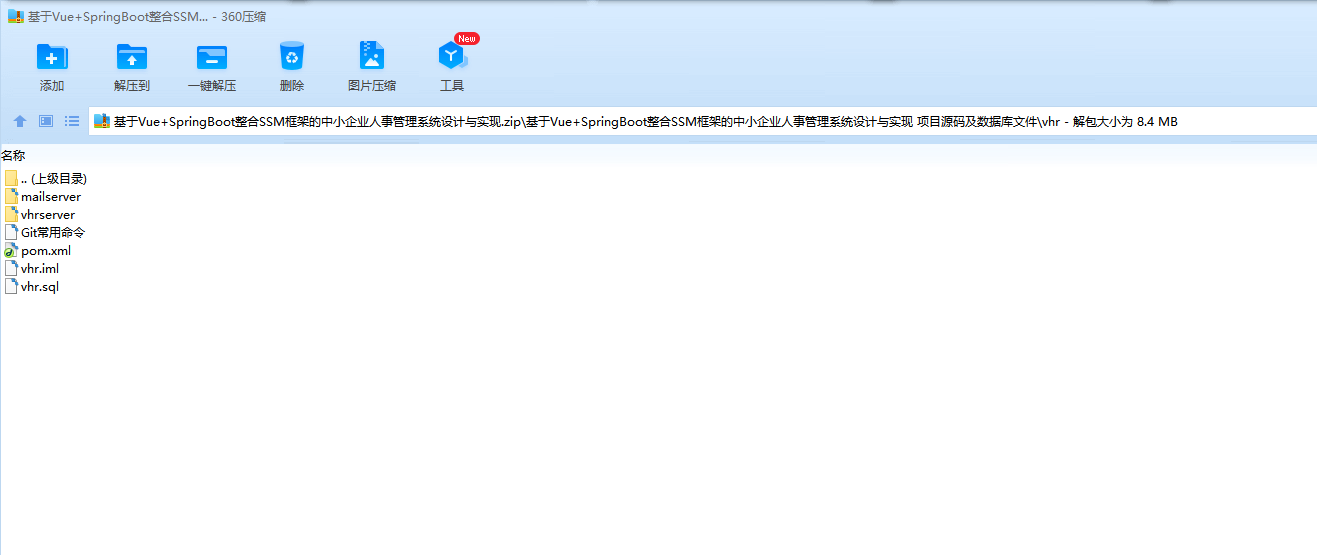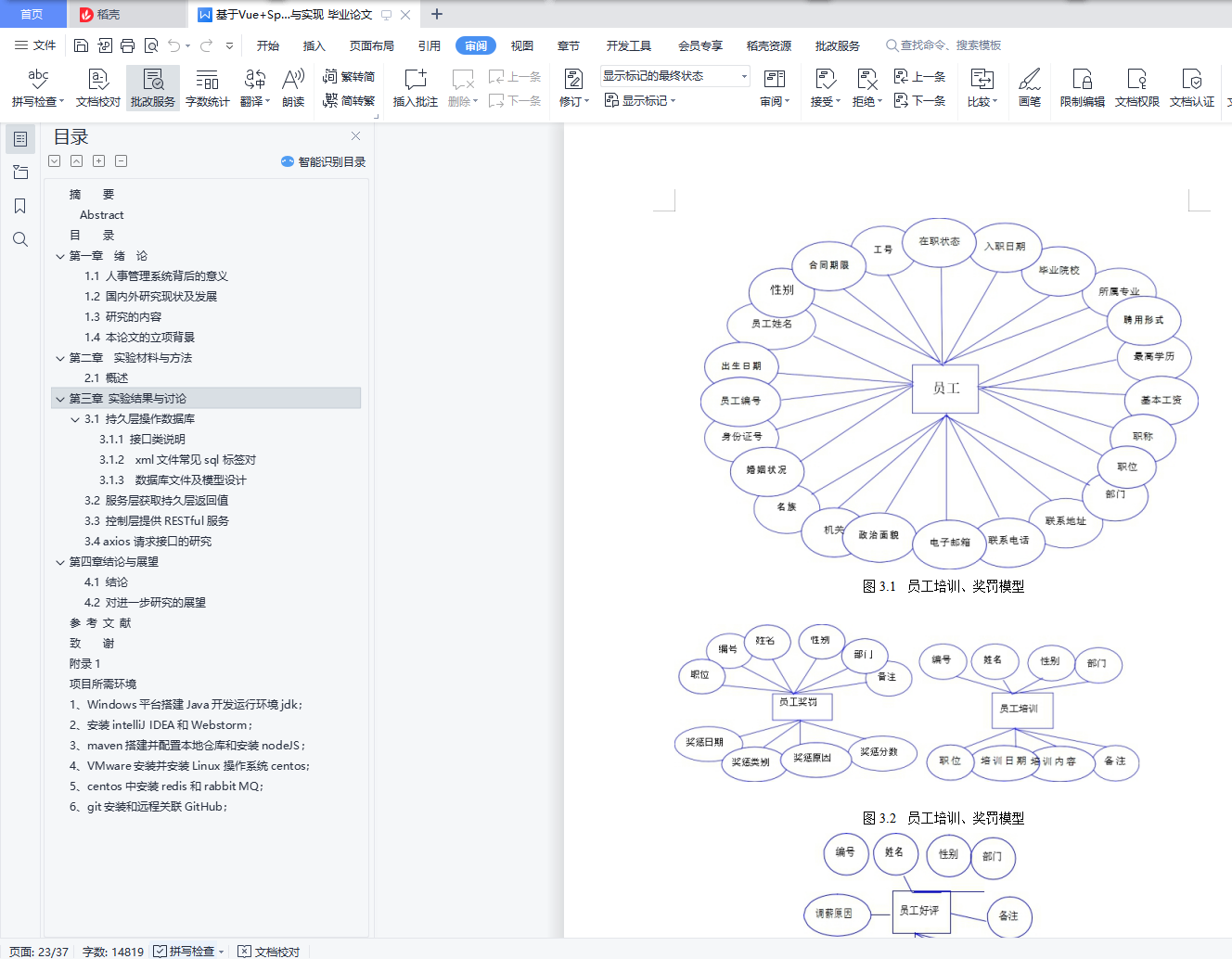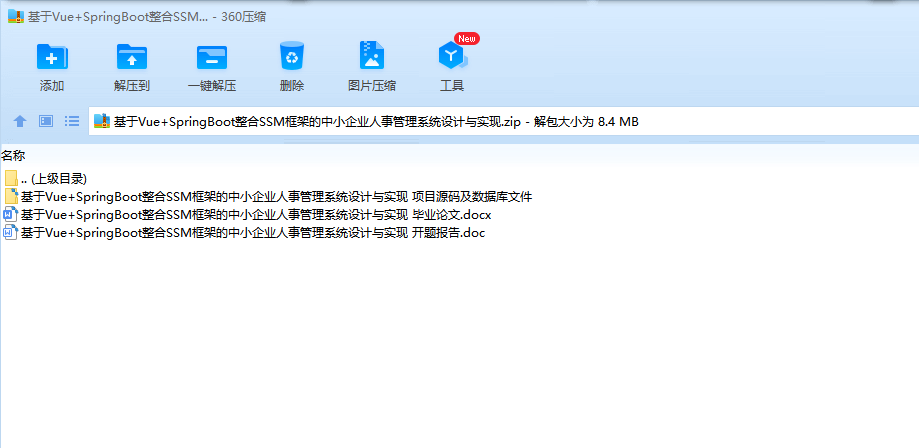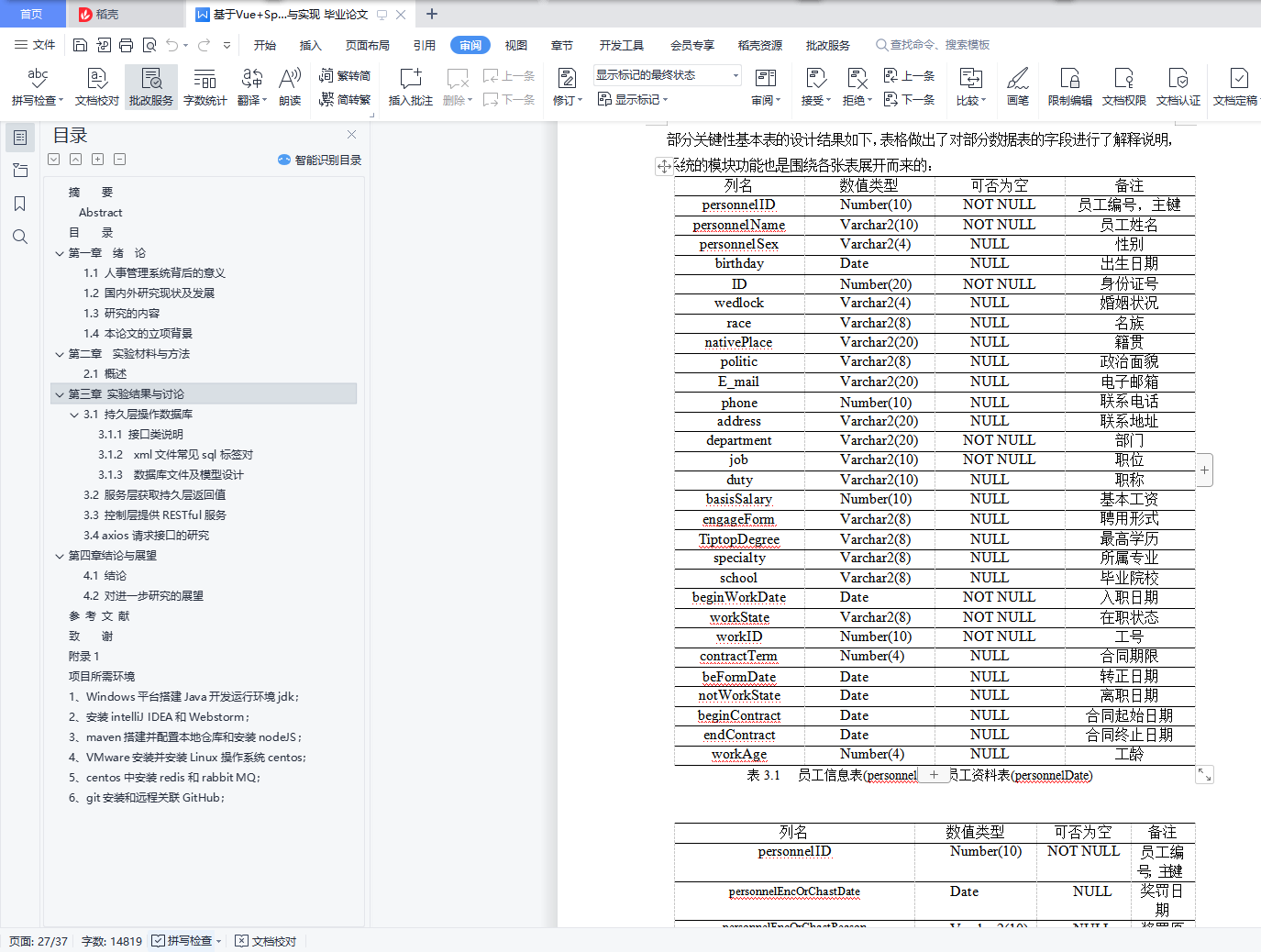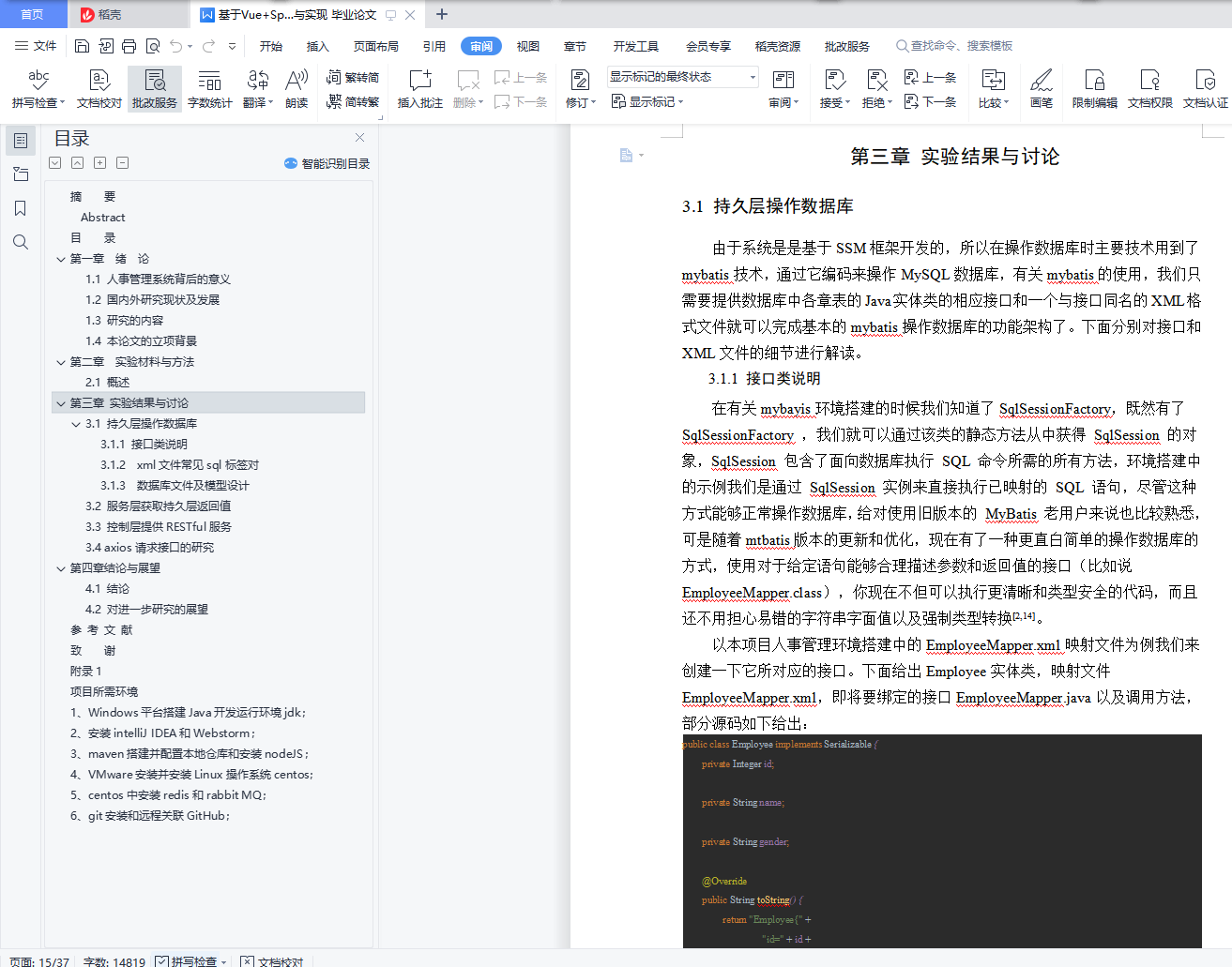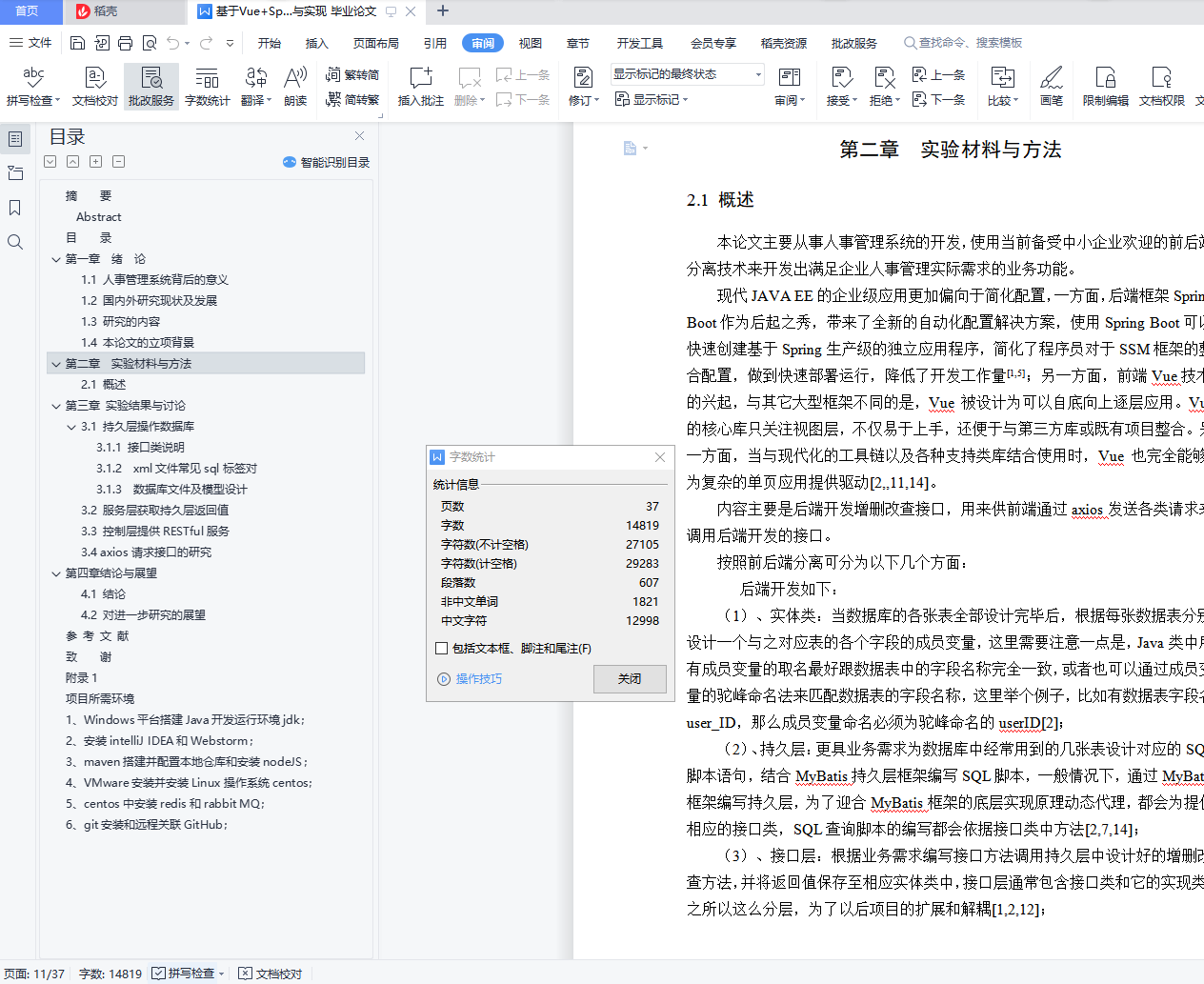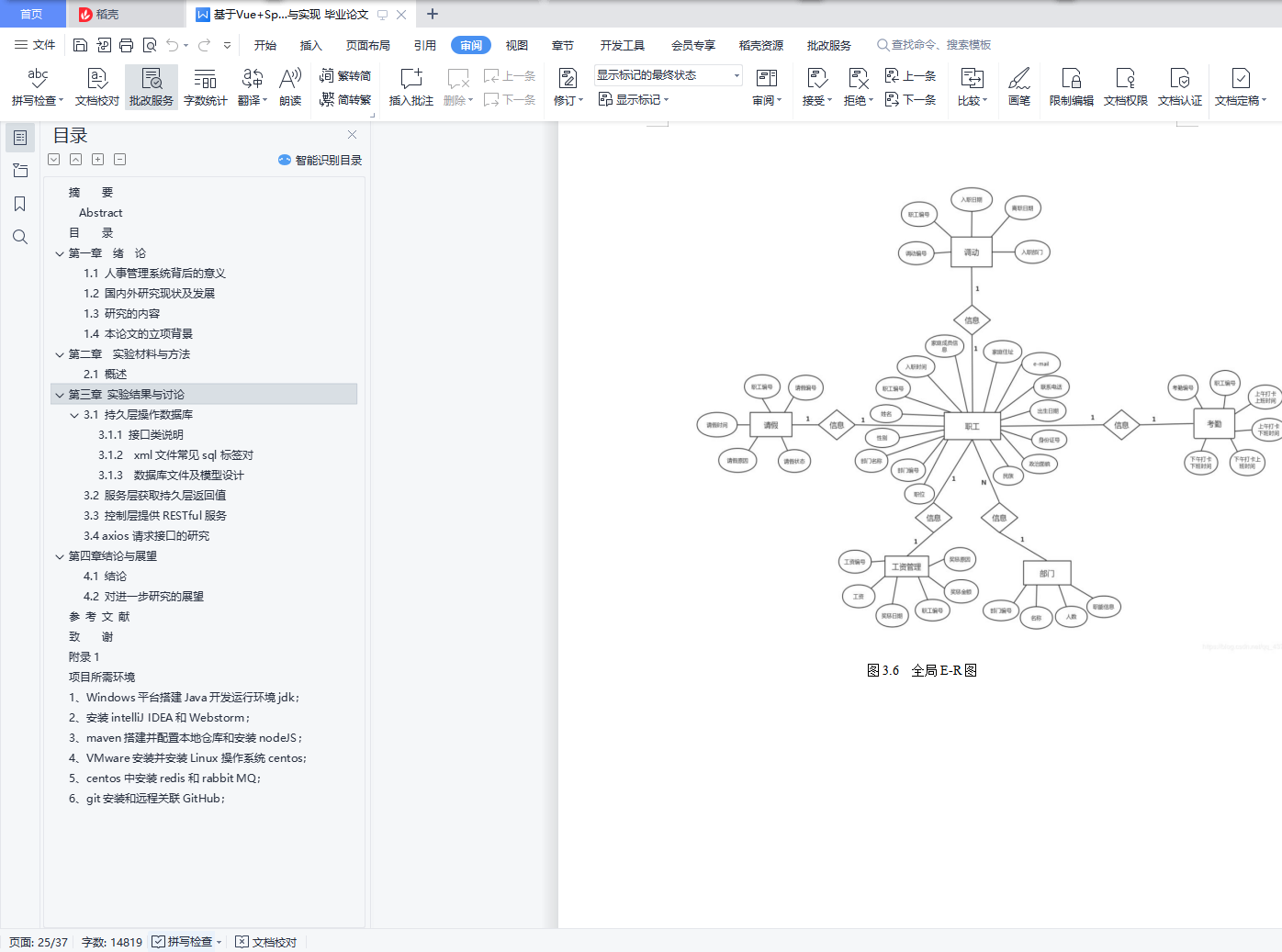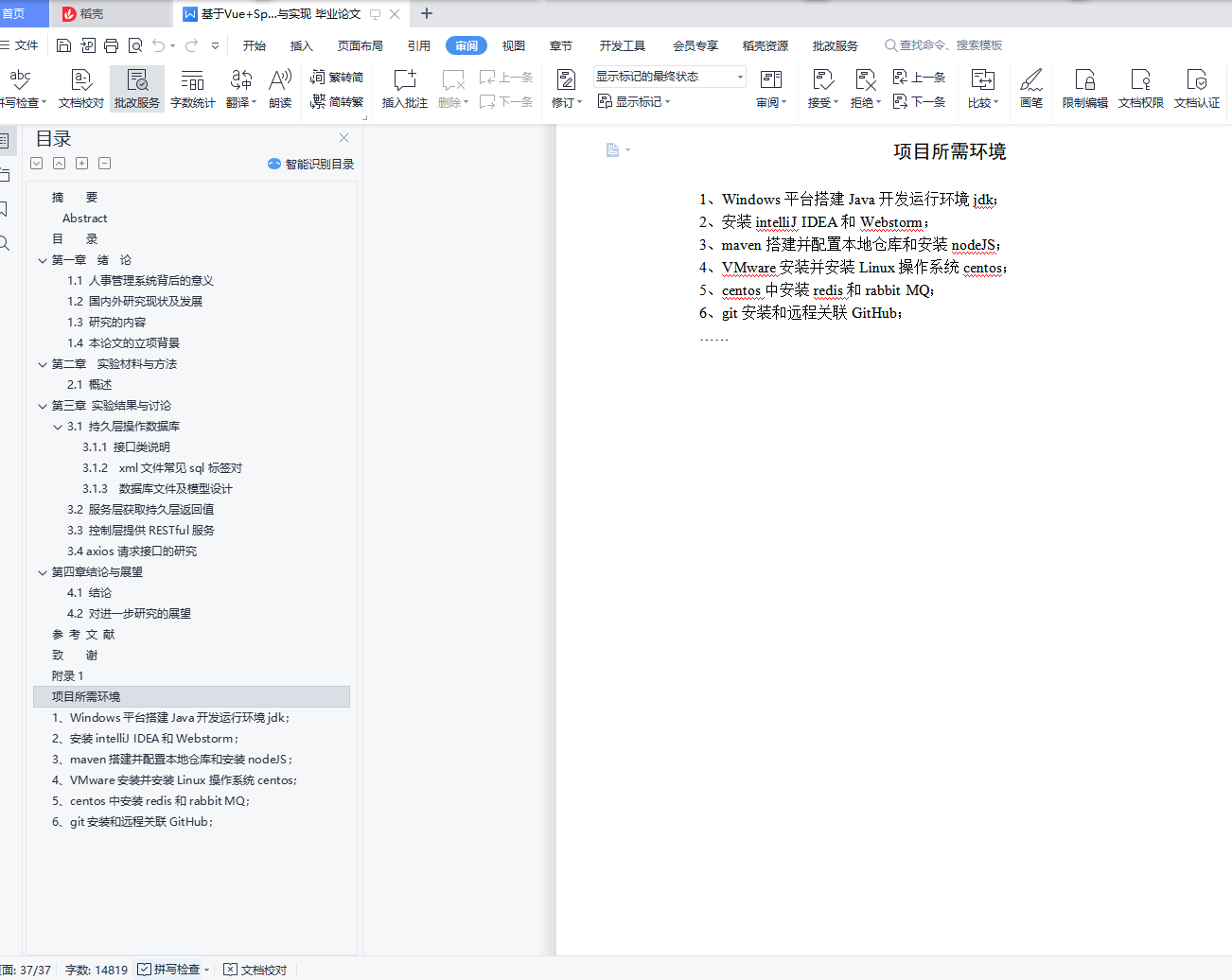摘 要
由于历史和java虚拟机跨平台及其自身语法的相对安全性等诸多技术原因,java语言技术对于企业级别的应用开发具有低成本高稳定性的优点,至此,一些企业常用的后台管理系统类也都以java技术独占一档。人事管理系统对公司为实现各个部门之间资源共享,增强企业即时通讯,志在提高员工工作效率,简化繁琐的手工统计、信息汇总和工资业务等大量手工工作,让人事组织和工资管理工作在人事组织相关的各部门之间活跃起来,进而增强企业凝固力。本论文主体用SSM框架实现了对系统后台的设计制作,并追随当下中小企业流行的前后端分离技术,所以后端看不到任何前端的设计过程,前端界面的展示结合了Vue和Element技术,从而避免了传统的JSP、Thymeleaf、FreeMarker等诸多前端界面技术混合在后端导致项目整体庞大冗余不便于管理,这将为后续的相关人员对项目维护、责任划分和功能扩展提供了极大的便利性,有利于项目解耦。
关键词:即时通讯,SSM框架,Vue,Element,分离,解耦
Abstract
java language has the advantages of low cost and high stability for enterprise-level application development. So far, some background management background management system classes commonly used in enterprises are also monopolized by java technology. Personnel management system for the company to achieve the sharing of resources between various departments, enhance enterprise instant messaging, in order to improve the efficiency of staff work, simplify cumbersome manual statistics, information collection and wage business, such as a large number of manual work, so that personnel organizations and wage management work in personnel organizations between the relevant departments, and then enhance the solidification of enterprises. The main body of this paper uses the SSM framework to design and manufacture the back-end of the system, and follows the popular front-end separation technology of small and medium-sized enterprises, so the back-end can not see any front-end design process. The display of the front-end interface combines Vue and Element technology.
Keywords: instant messaging, SSM framework, Vue,Element, separation, decoupling
目 录
第一章 绪论 1
1.1 人事管理系统背后的意义 1
1.2 国内外研究现状及发展 1
1.3 研究的内容 3
1.4 本论文的立项背景 6
第二章 实验材料与方法 8
2.1 概述 8
2.2 实验材料与方法 9
第三章 实验结果与讨论 12
3.1 持久层操作数据库 14
3.1.1 接口类说明 14
3.1.2 xml文件常见sql标签对 15
3.1.3 数据库文件及模型设计 19
3.2 服务层获取持久层返回值 26
3.3 控制层提供RESTful服务 27
3.4 axios请求接口的研究 28
第四章 结论与展望 31
4.1 结论 31
4.2 对进一步研究的展望 31
参考文献 32
致 谢 33
附 录 34
